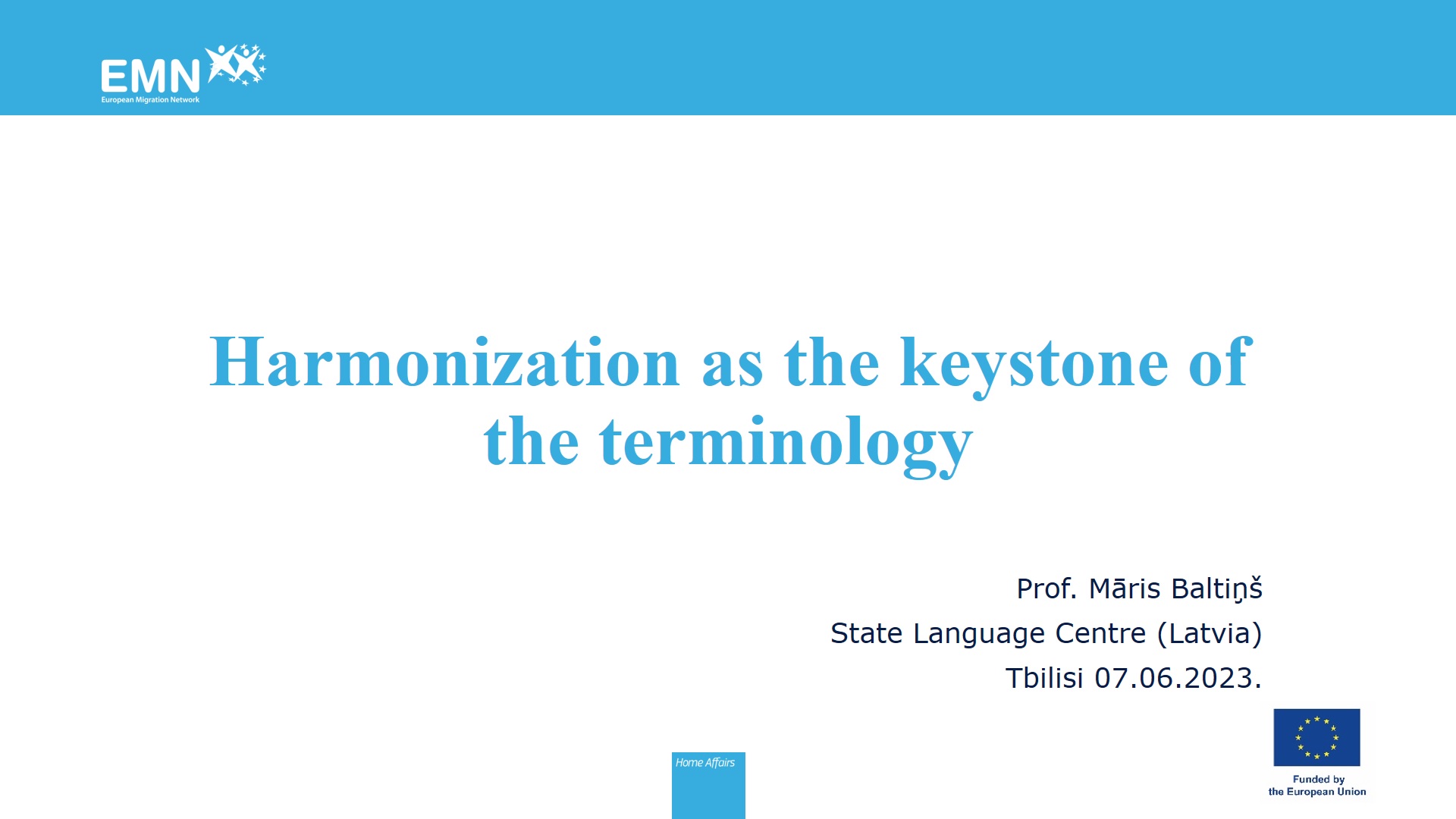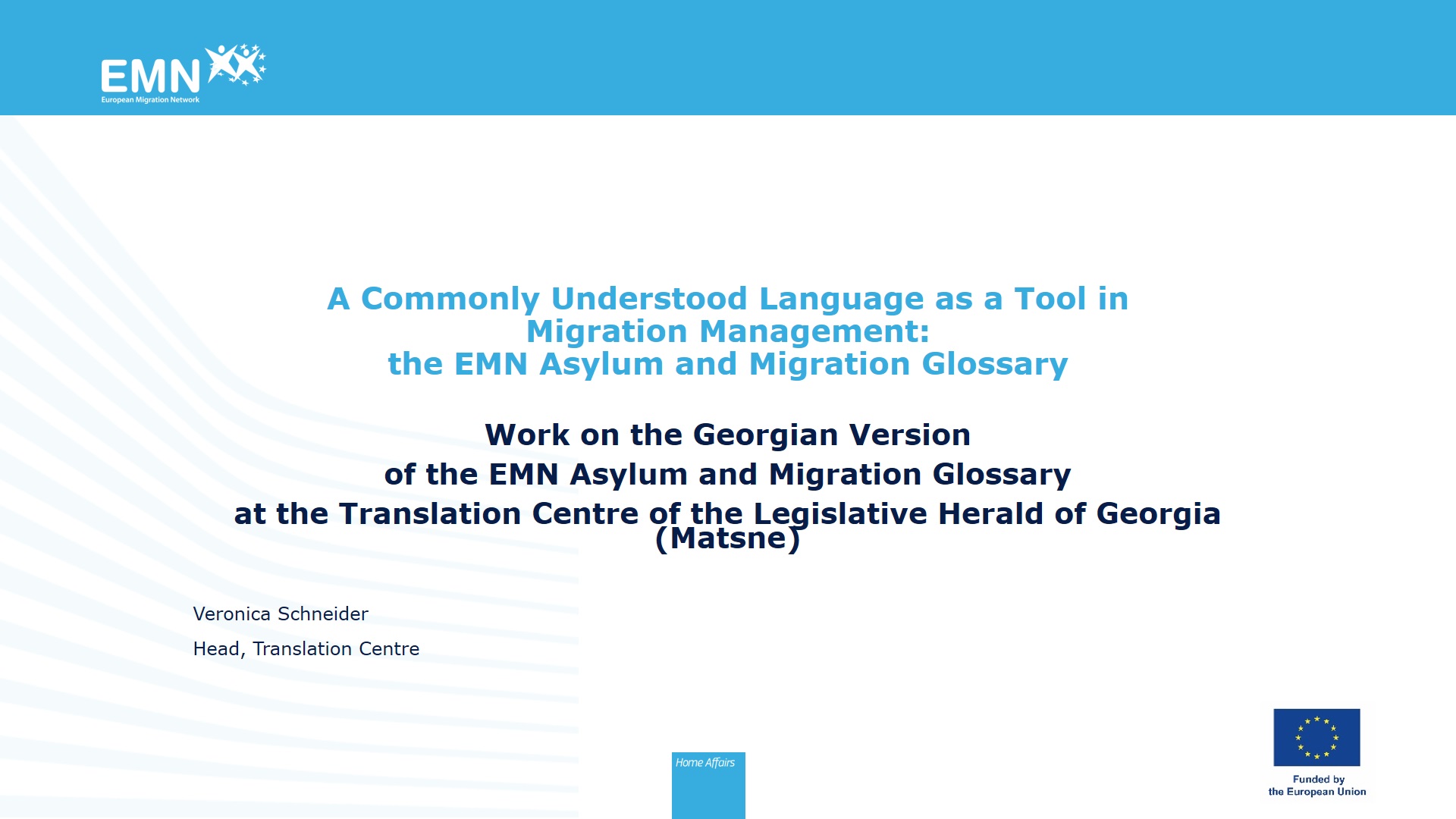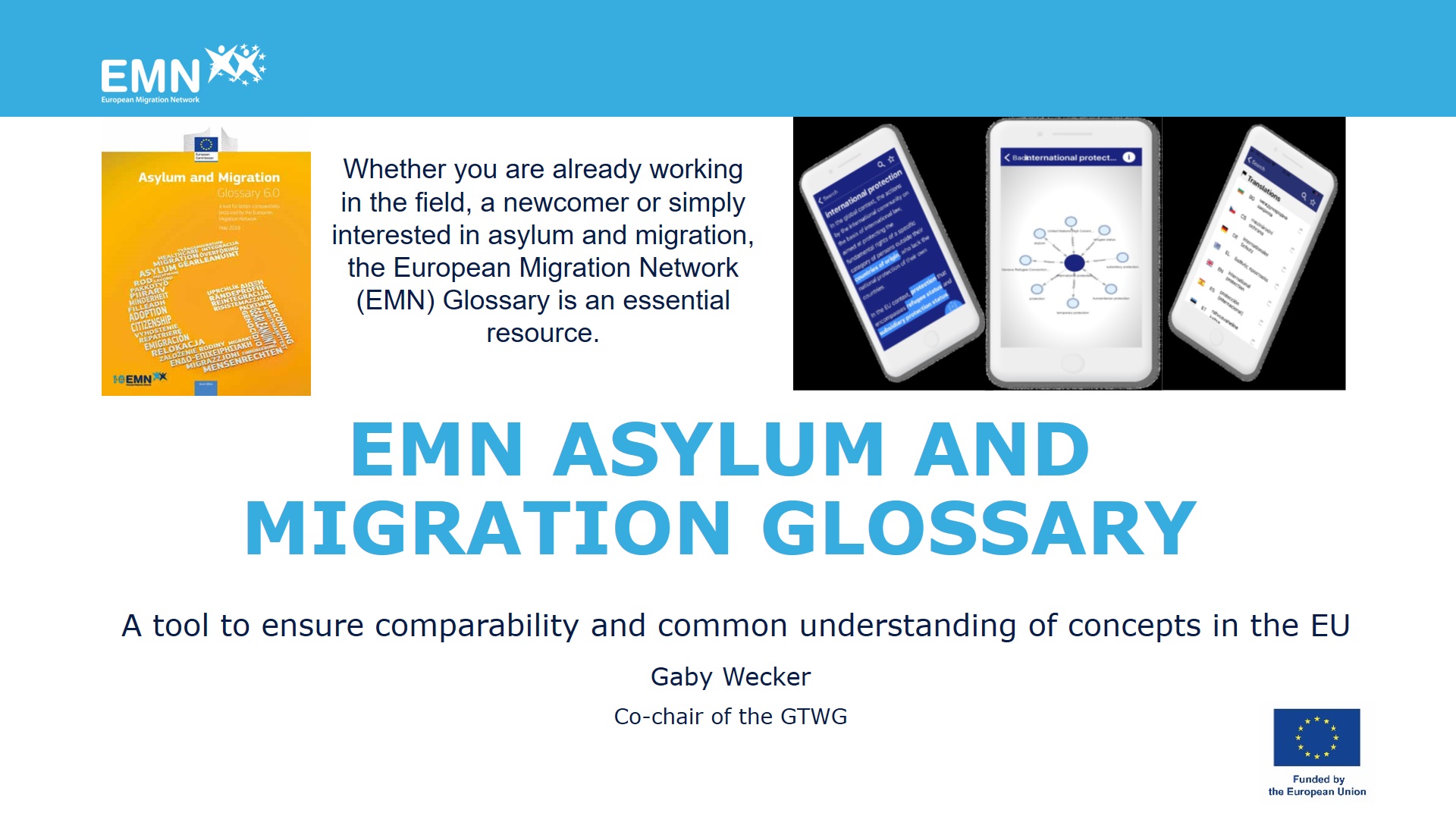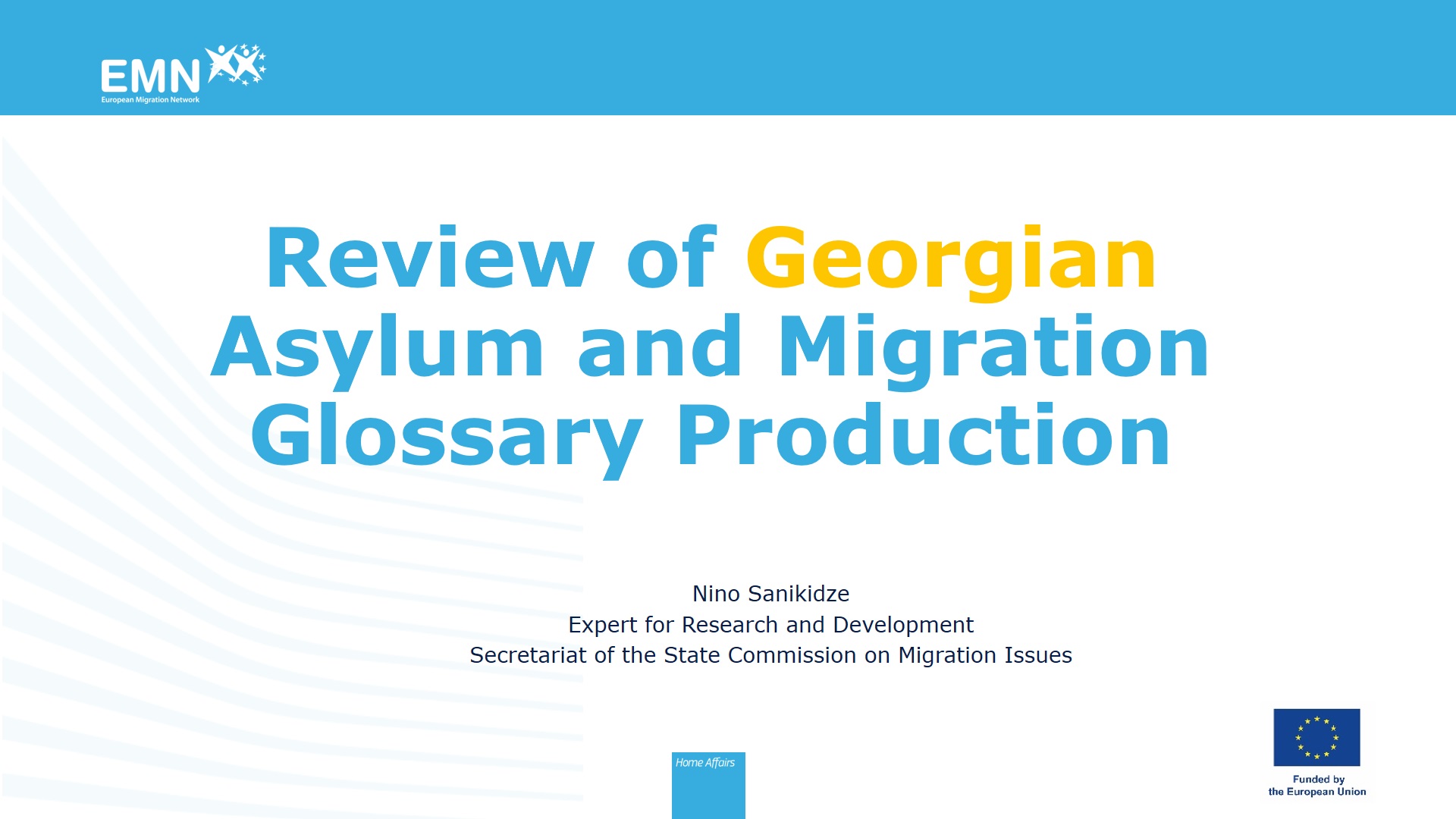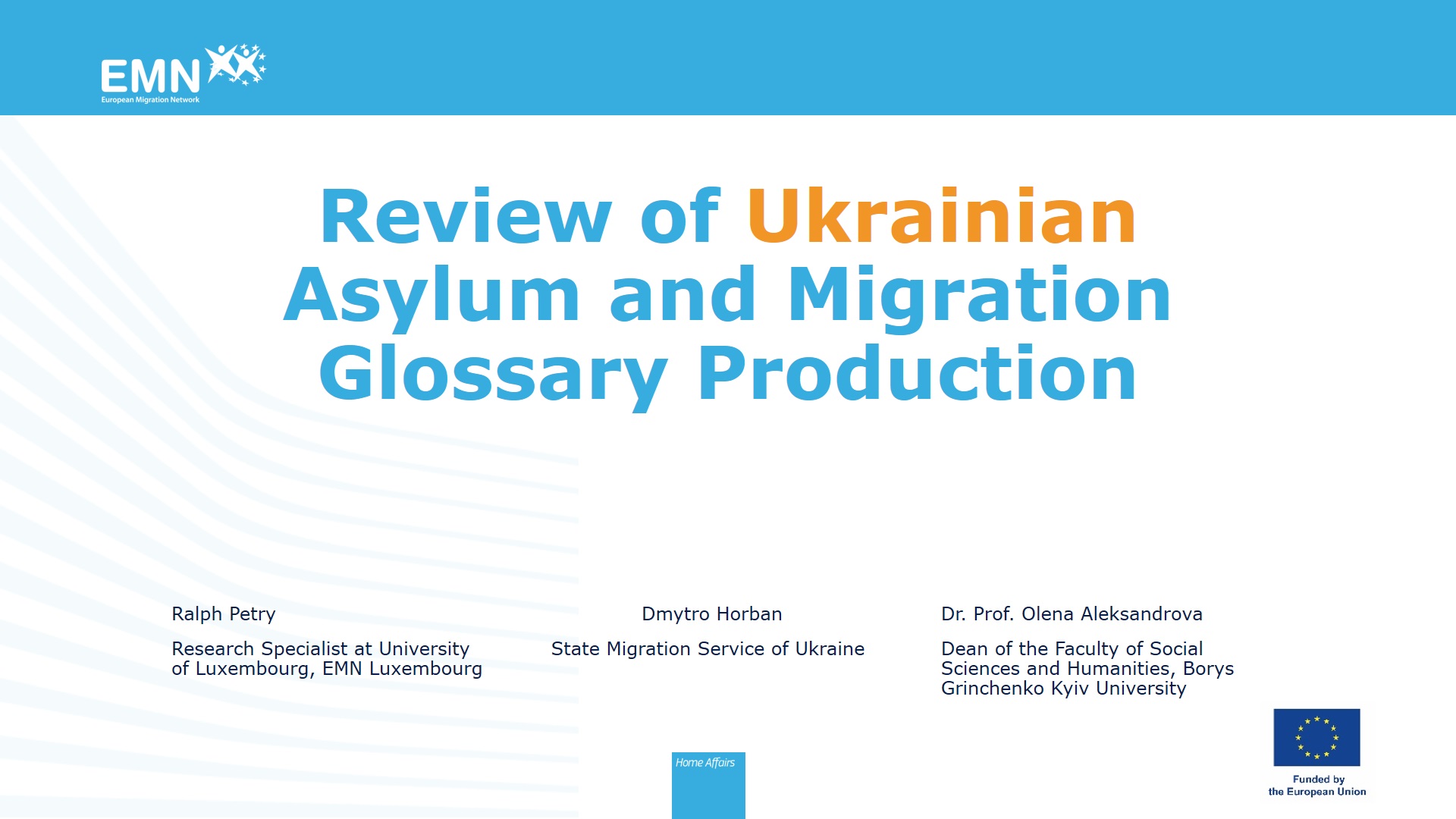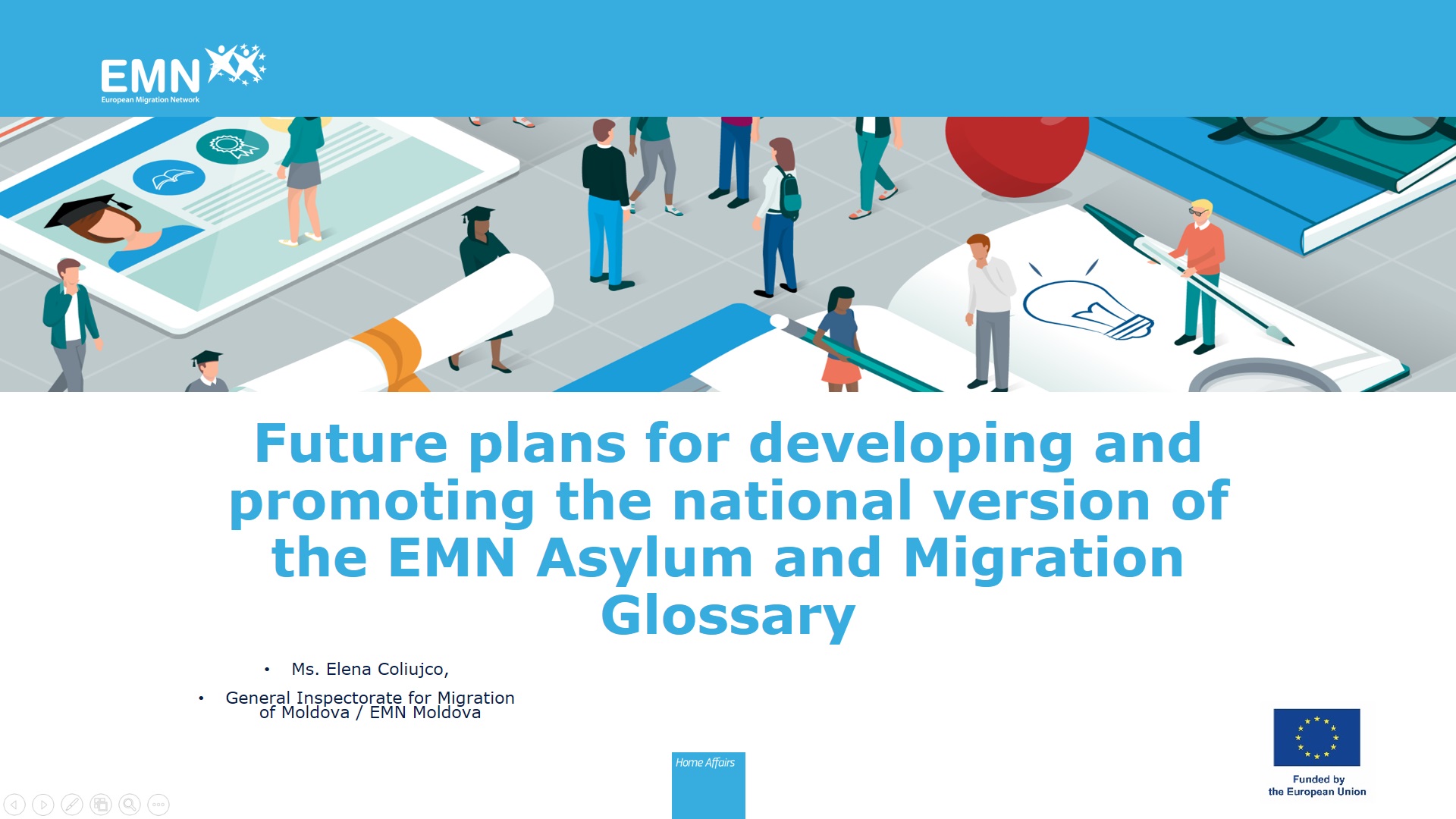
Every field has its own, unique language, which is an important tool in managing it and making others understand well the essence of the action. The very same applies especially to the sphere of migration, which recently expanded so much by penetrating practically into all segments of our setting, that language it uses requires enrichment and what is more important establishing vitally necessary interlinkages with other, though related fields. However, the need of a common language is not limited to only national or organizational frames, but goes beyond, embracing other countries (sometime of a single region but still) having differing systems and legislative bases for migration management. Here it practically everywhere becomes absolutely evident that many definitions are often just indefinite, contentious or even contradictory.
The need to exchange information on all aspects of migration had already been identified as a priority of EU asylum and migration policy. To improve the exchange of information between and within Member States across the wide range of asylum and migration policy developments, information must be comparable between the EMN Member and Observer States to the greatest possible extent, and for this a consistent use of terms is required.
In this respect, one of the main objectives of the European Migration Network, as outlined in Article 2(1c) of Council Decision 2008/381/EC is to improve consistency and compatibility of information between Member States. The EMN, coordinated by EC and active in all Member and Observer States, supports the EU in better responding to the challenges in the key areas of asylum and migration. It provides policymakers and the wider public with up-to-date, objective, reliable and comparable information on all aspects of migration and asylum. To this end, the development of a comprehensive Glossary that identifies and describes different concepts central to asylum and migration policy in the EU is one of the main activities undertaken by the EMN to achieve this objective.
The Glossary supports policy discussions across the EMN by providing a common vocabulary of up-to-date terms and concepts in all Member and now some Observer State languages, thus allowing for a better understanding and compatibility of migration and asylum phenomena.
With that in mind the purpose of the hybrid conference is twofold: to highlight the essence of the EMN Glossary and its meaning for EU and beyond (observer states, other users); and to provide a wider discussion platform where representatives of the EMN NCPs, academic circles and migration practitioners from different countries would share knowledge and experience on own approaches to the application of migration related terminology, challenges arising when dealing with translation or adjustment of certain (including new alike those deriving from the sphere of digitalization, etc.) terms to national vocabularies.
The event is organized by EMN Georgia and EMN Latvia as a hybrid event taking place in Georgia and online.
ARRIVAL & ACCOMMODATION of participants for both EMN events: National Conference and Glossary and Thesaurus Working group meeting.
Please bring your ID for the entrance.
10.30 Gathering of EMN Glossary and Thesaurus Working Group participants at Tbilisi Public Service Hall (PSH).
Meeting point: Administrative entrance (with EMN sign) of PSH (from parking side).
(PSH – Address: Tbilisi 0114, 2 Sanapiro str.)
11.00 – 18.00 GTWG MEETING: (PSH 3rd floor)
EMN Glossary and Thesaurus Working Group meeting (Tbilisi Public Service Hall [PSH] – for EMN GTWG members only, coffee breaks / lunch provided).
19.00 RECEPTION: (venue TBD)
9.00 Participants are gathered in front of the Tbilisi Public Service Hall to be transported to the conference venue
09.30 – 10.00 Welcome coffee and registration
10.00 – 10.15 Welcoming remarks
§ Ms. Tamar Tkheshelashvili – First Deputy Minister of Justice of Georgia
§ Mr. Dimitrijs Trofimovs – State Secretary, Ministry of
Interior of Latvia
§ Mr. Magnus Ovilius – Head of Sector Forecasting, Preparedness and Policy Monitoring, Directorate-General for Migration and Home Affairs, European Commission
10.15 – 11.45 Panel 1: Introducing common terminology in the field of asylum and migration through the prism of EMN Asylum and Migration Glossary
The first panel focuses on the importance of introducing common agreed terminology and language in the field of asylum and migration on the EU level, across the EU institutions as well as in the Member States and the EU Neighbourhood. The objective brings into spotlight the EMN Asylum and Migration Glossary, regularly updated with new terms in response to the legal and operational novelties in the field and describing the different contexts of their usage within the EU.
Moderator: Mr Jonas Hols – EMN Glossary and Thesaurus Working Group Co-chair
§ Harmonisation as the keystone of the terminology work, Mr. Māris Baltiņš – Director of the Latvian State Language Centre, a key note speaker
§ Terminology work at Legislative Harold of Georgia “Matsne”, Ms. Veronika Shnaideri – Head of Translation Center, Legislative Herald of Georgia under the Ministry of Justice
§ Ms Gabriele Wecker – Co-chair of EMN Glossary and Thesaurus Working Group
§ Specific methodology for multilingual legal terminology management at the Court of Justice of the EU – Ms Caroline Reichling (Head of the Unit) & Ms Barbara Duh (Principal Administrator in charge of terminological coordination) – Court of Justice of the European Union, Projects and Terminological Coordination Unit
Questions and Answers/ Moderated discussion
11.45 – 12.00 Coffee break
12.00 – 13.15 Panel 2: EMN Member and Observer Countries’ national versions of the EMN Asylum and Migration Glossary
The second session allows participants to focus on developing the national versions of the EMN Asylum and Migration Glossary, which, along with EMN Member Countries, now embrace the Observer Countries as well: Georgian Ukrainian and Moldova NCPs will reflect on their own experiences and future plans of translating and promoting the EMN Asylum and Migration Glossary from the third country perspective – setting the framework of producing the national glossaries beyond the EU.
Moderator: Ms. Nino Sanikidze, EMN Georgia
§ Review of GE Asylum and Migration Glossary production – Ms. Nino Sanikidze, Expert for Research and Development of SCMI Secretariat/EMN Georgia
§ Review of UA Asylum and Migration Glossary production – Mr. Ralph Petry, Research Specialist at University of Luxembourg, EMN Luxemburg and Ms. Olena Aleksandrova, Borys Grinchenko Kyiv University
§ Future plans for developing and promoting the national version of the Asylum and Migration Glossary – Ms. Elena Coliujco, General Inspectorate for Migration of Moldova / EMN Moldova
Questions and Answers/ Moderated discussion
13.15 – 14.15 Lunch break
14.15 – 14.30 Family photo
14.30 – 15.45 Panel 3: Promoting the EMN Glossary
The last panel focuses on the ways to promote the wider usage of the EMN Asylum and Migration Glossary (with the first target being the versatile EMN products) and extending its visibility to the various EU institutions, policy-makers, academia and media. Good practices of EMN NCPs of publicising the (different forms) of the Glossary will be highlighted during the panel.
Moderator: Ms. Ilva Ievina, EMN Latvia
The ways and good examples of promoting Glossary and mechanisms for promoting usage of common migration terminology within/beyond EU – Ms. Ilva Ievina, EMN Latvia, Ms. Soňa Oboňová, EMN Slovakia, Ms. Johanna Väänänen, EMN Finland
Questions and Answers/ Moderated discussion
15.45 – 16.00 Concluding remarks
§ Ms. Ilva Ievina, EMN Latvia
§ Mr. George Jashi, EMN Georgia
EMN Georgia
The Contact Point of European Migration Network in Georgia (EMN Georgia) is the Secretariat of the State Commission on Migration Issues (SCMI) within the Public Service Development Agency (PSDA) under the Ministry of Justice of Georgia (Chair of the SCMI).
Contact:
Email: scmi-secretariat@sda.gov.ge
Website: http://migration.commission.ge/index.php?article_id=326&clang=1
EMN Latvia
The Contact Point of European Migration Network in Latvia (EMN Latvia) is the Office of Citizenship and Migration Affairs of Latvia under the Ministry of the Interior of Latvia.
Contact:
Email: emn@pmlp.gov.lv
Website: www.emn.lv
An international conference titled – A Commonly Understood Language as a Tool in Migration Management: the EMN Glossary on Migration & Asylum – is organized under the auspices of the European Migration Network (EMN) as the initiative of its Georgian and Latvian National Contact Points within the framework of EMN Glossary and Thesaurus Working Group (GTWG).
Photos of the Conference
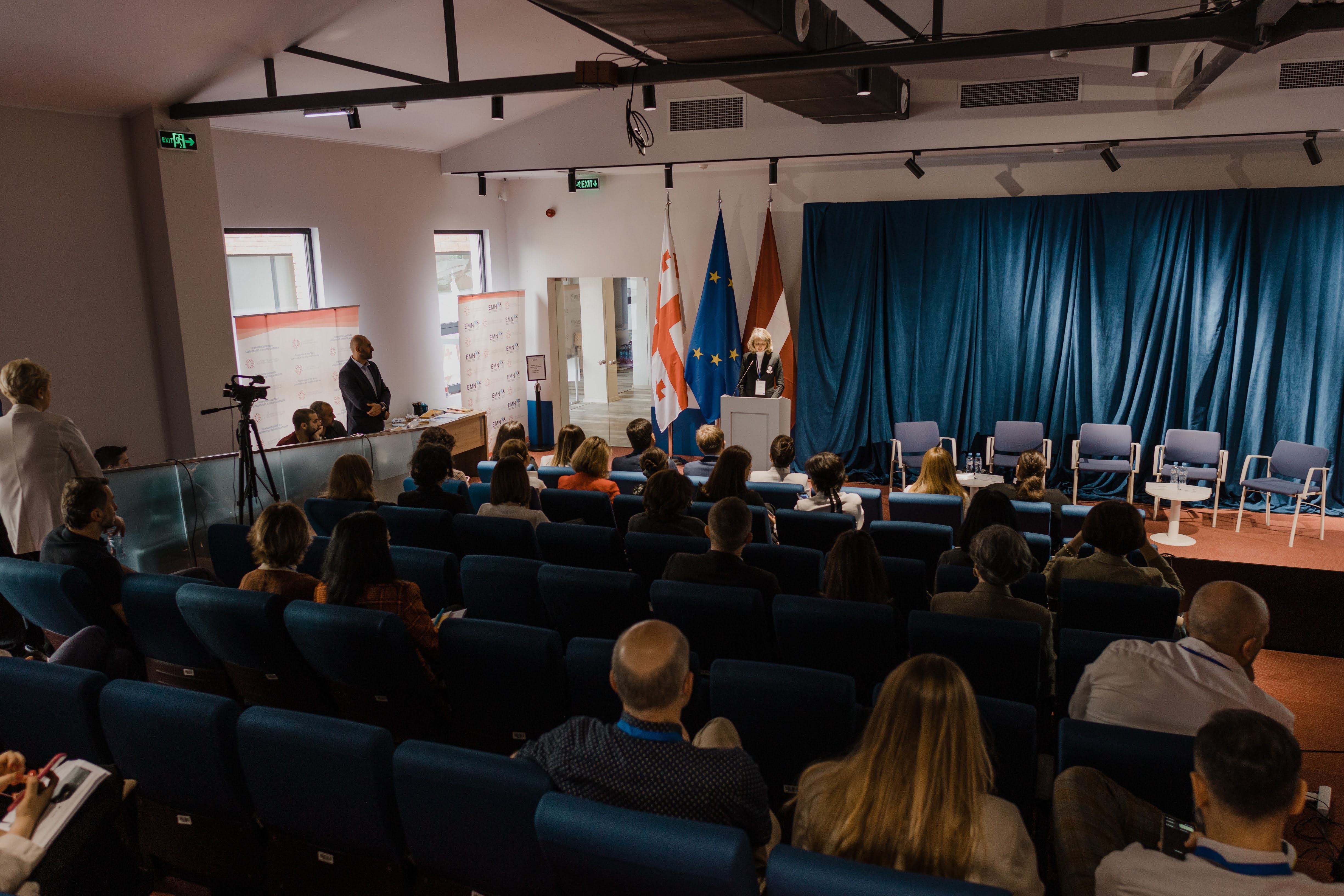
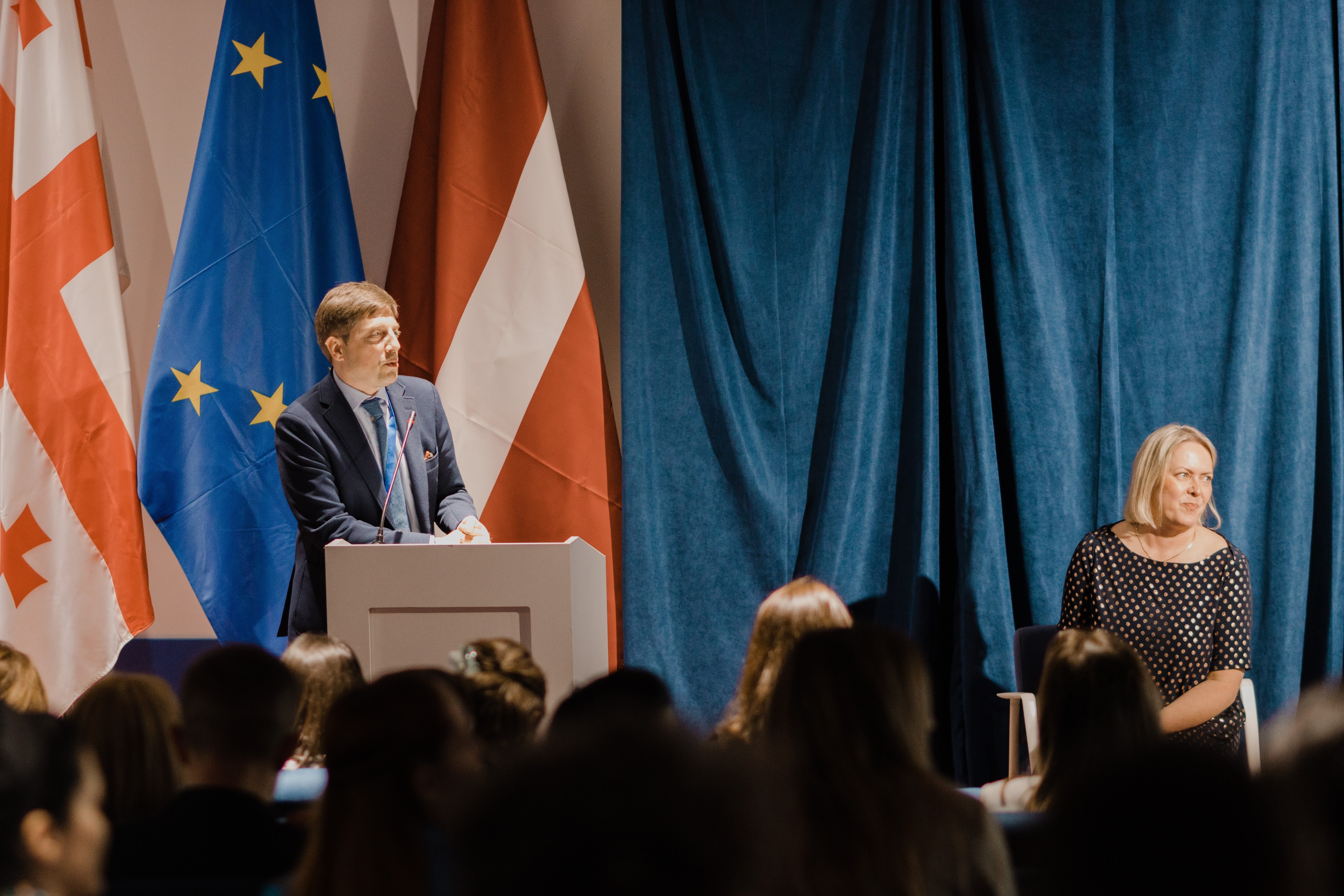
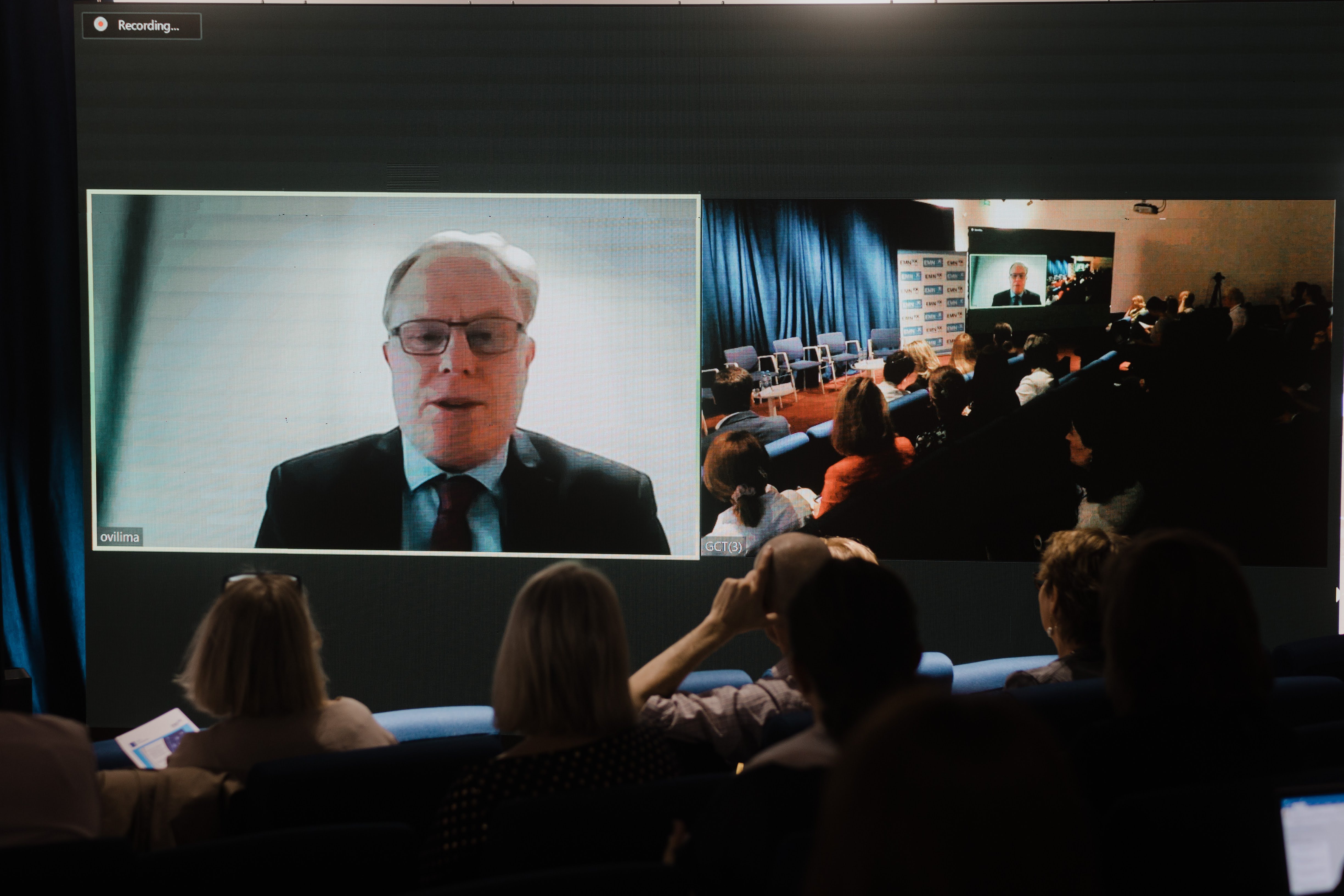
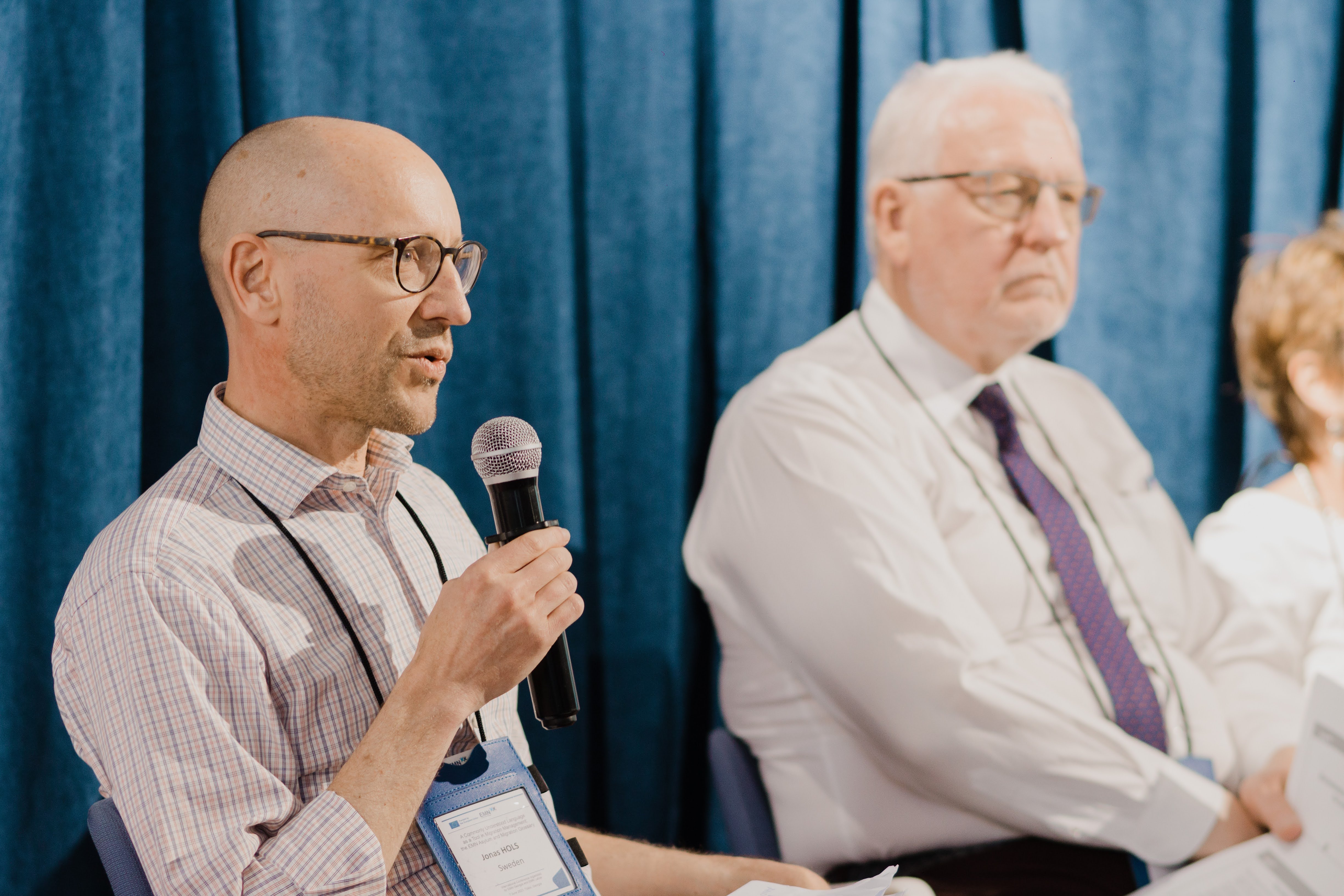
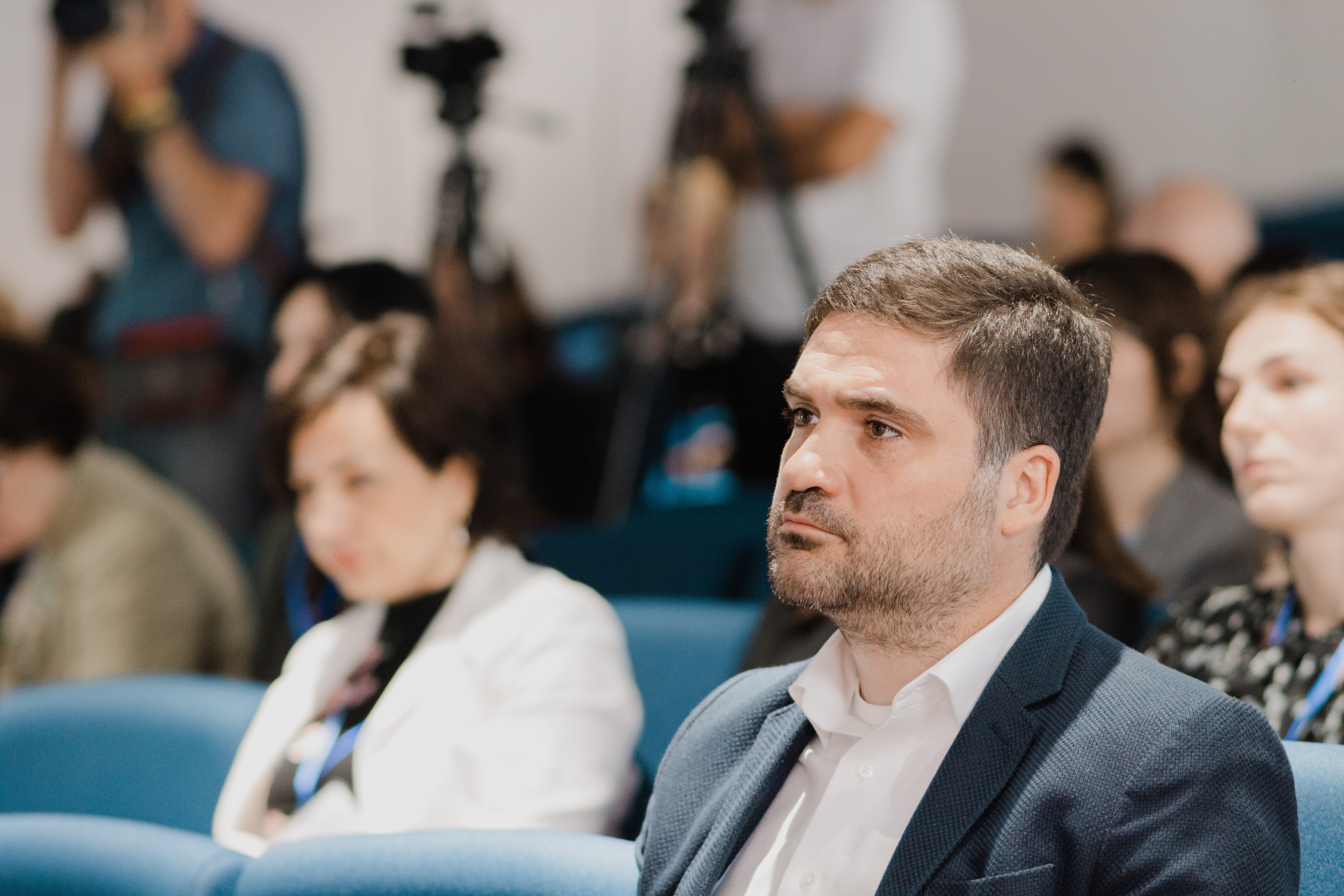
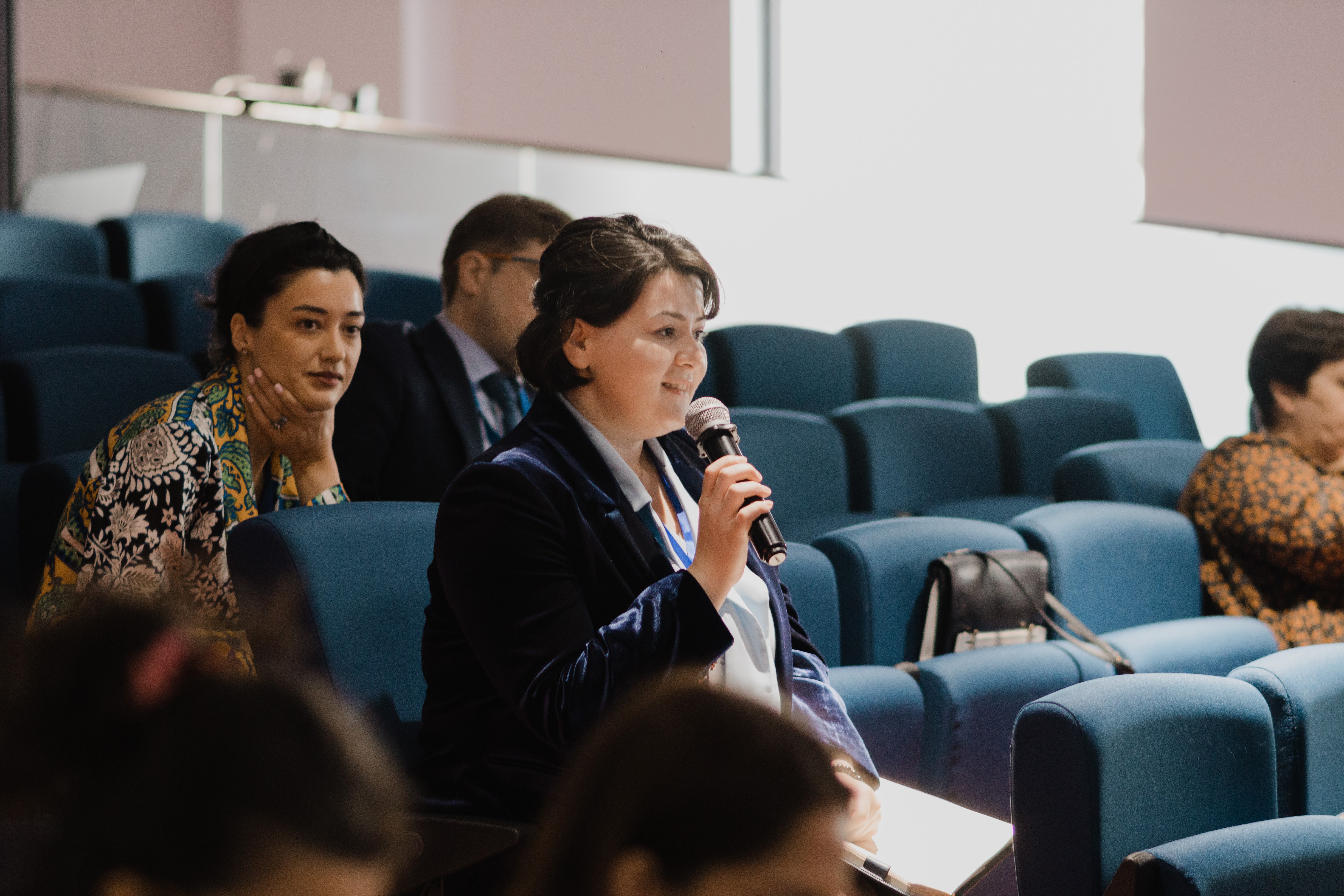
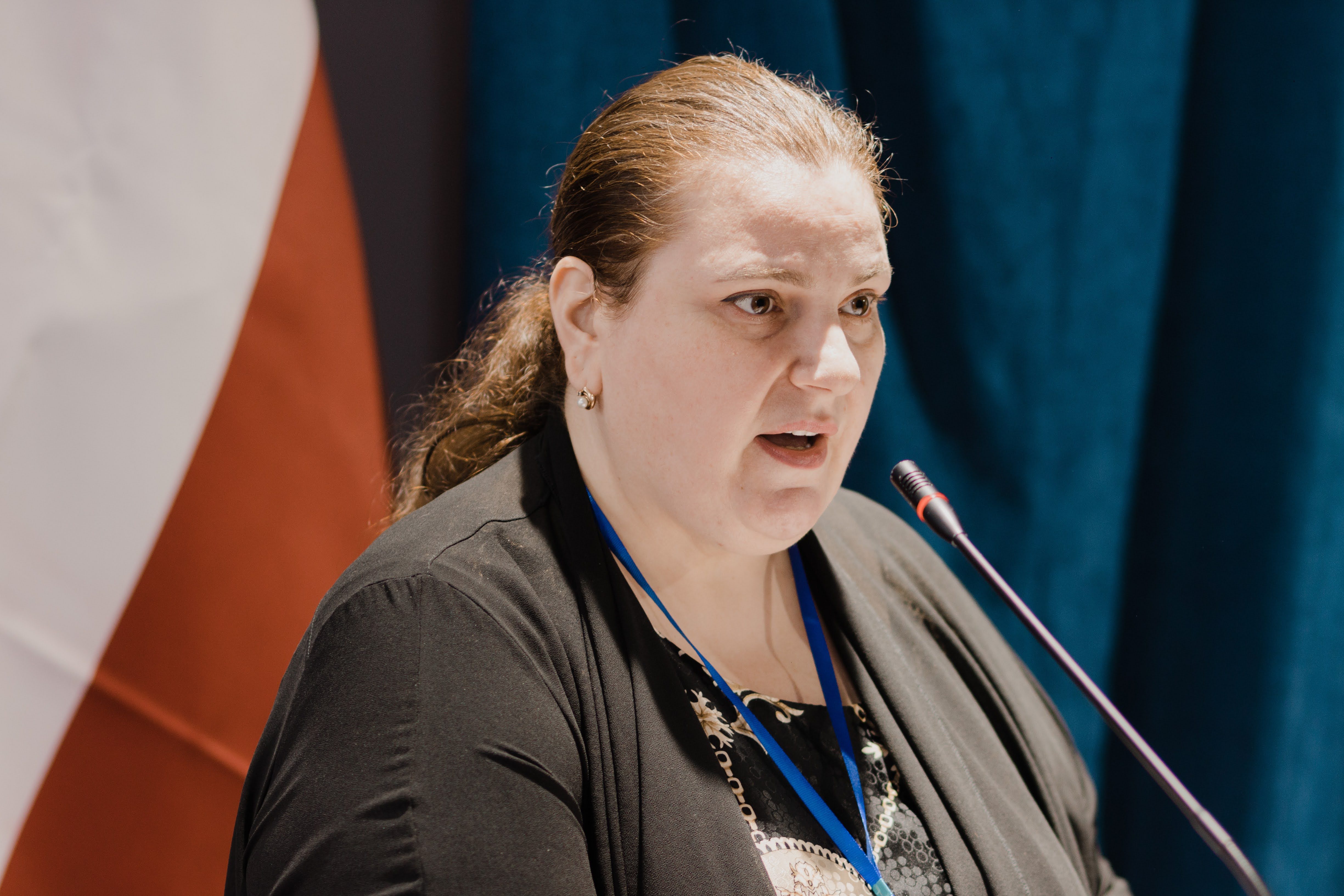
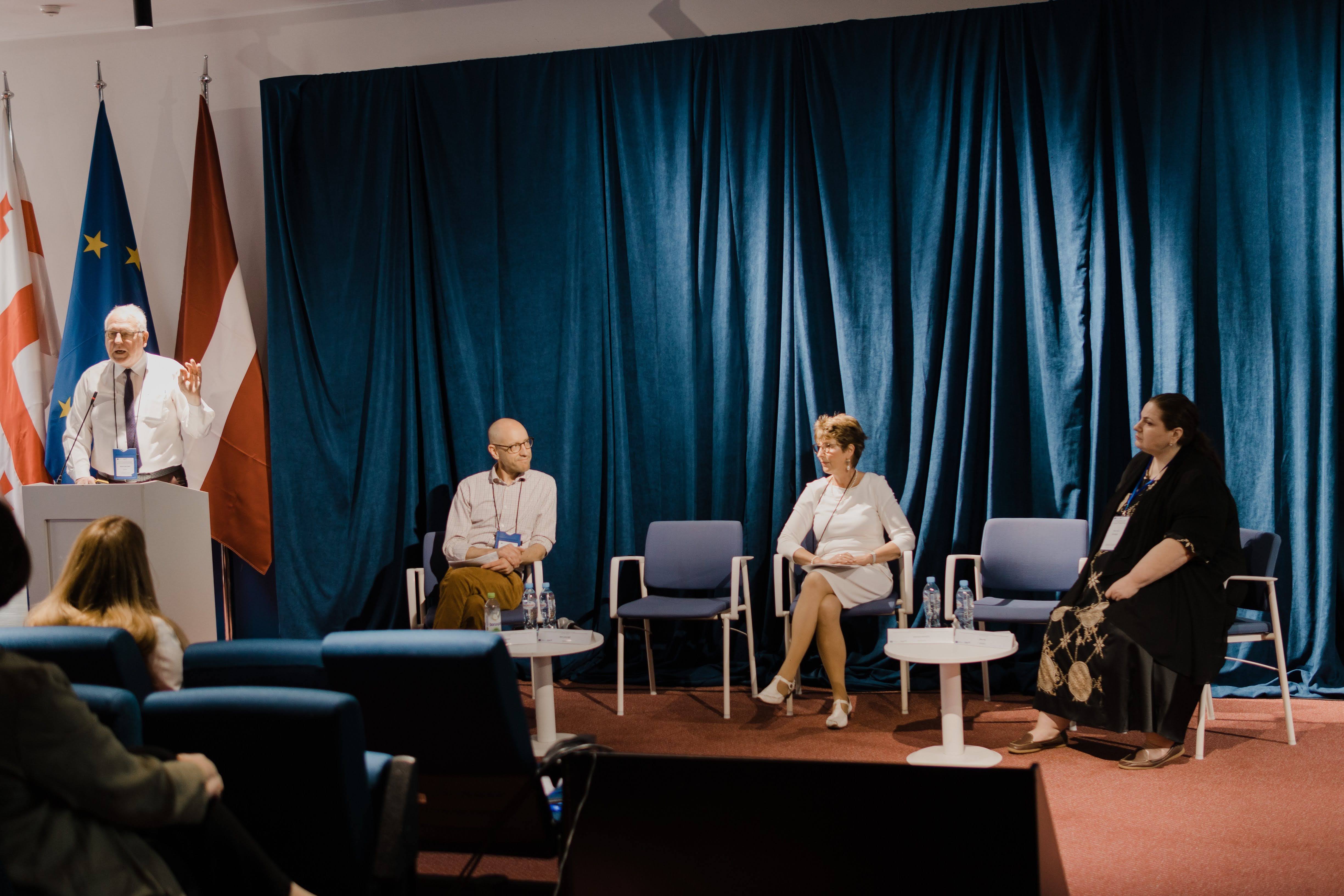
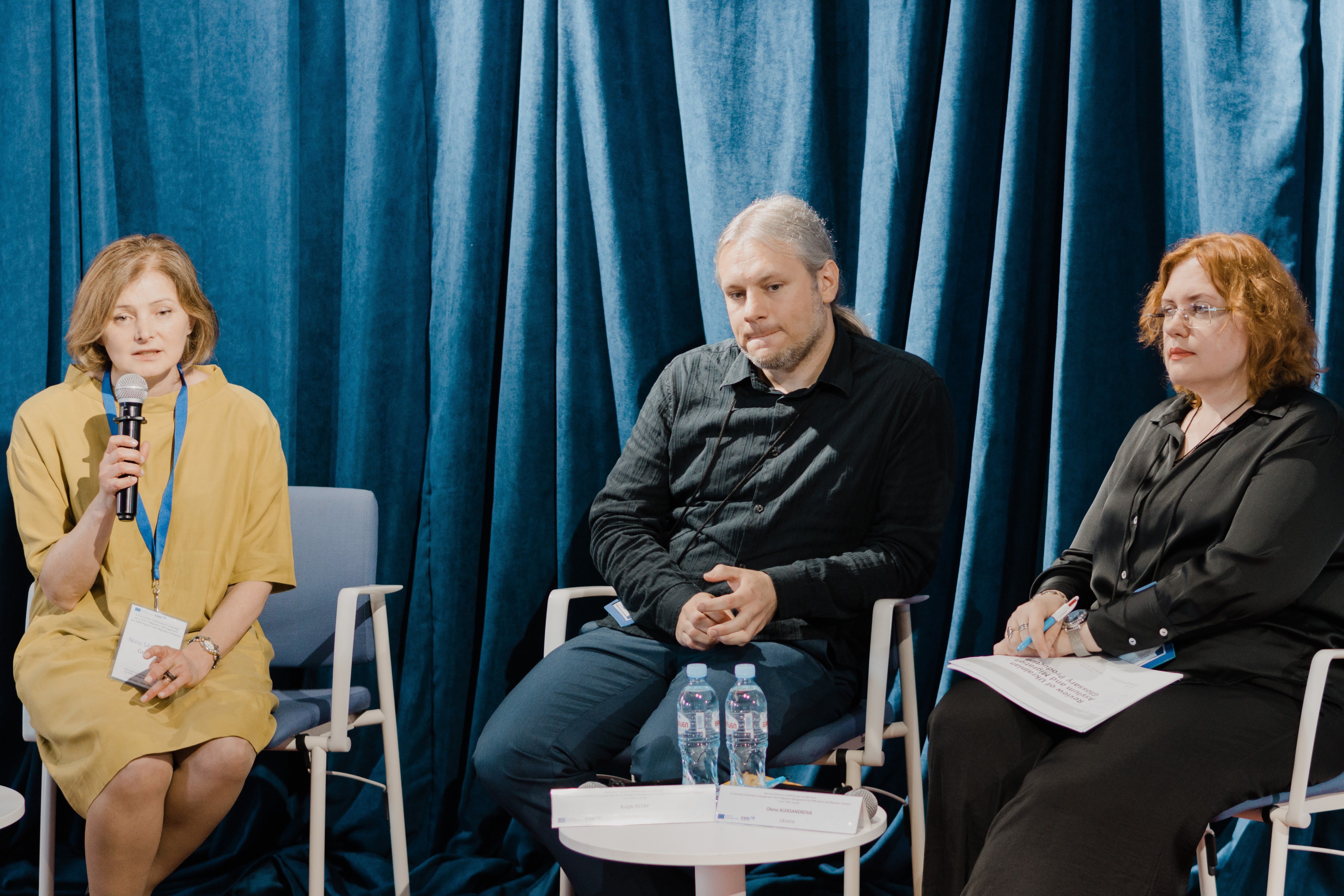
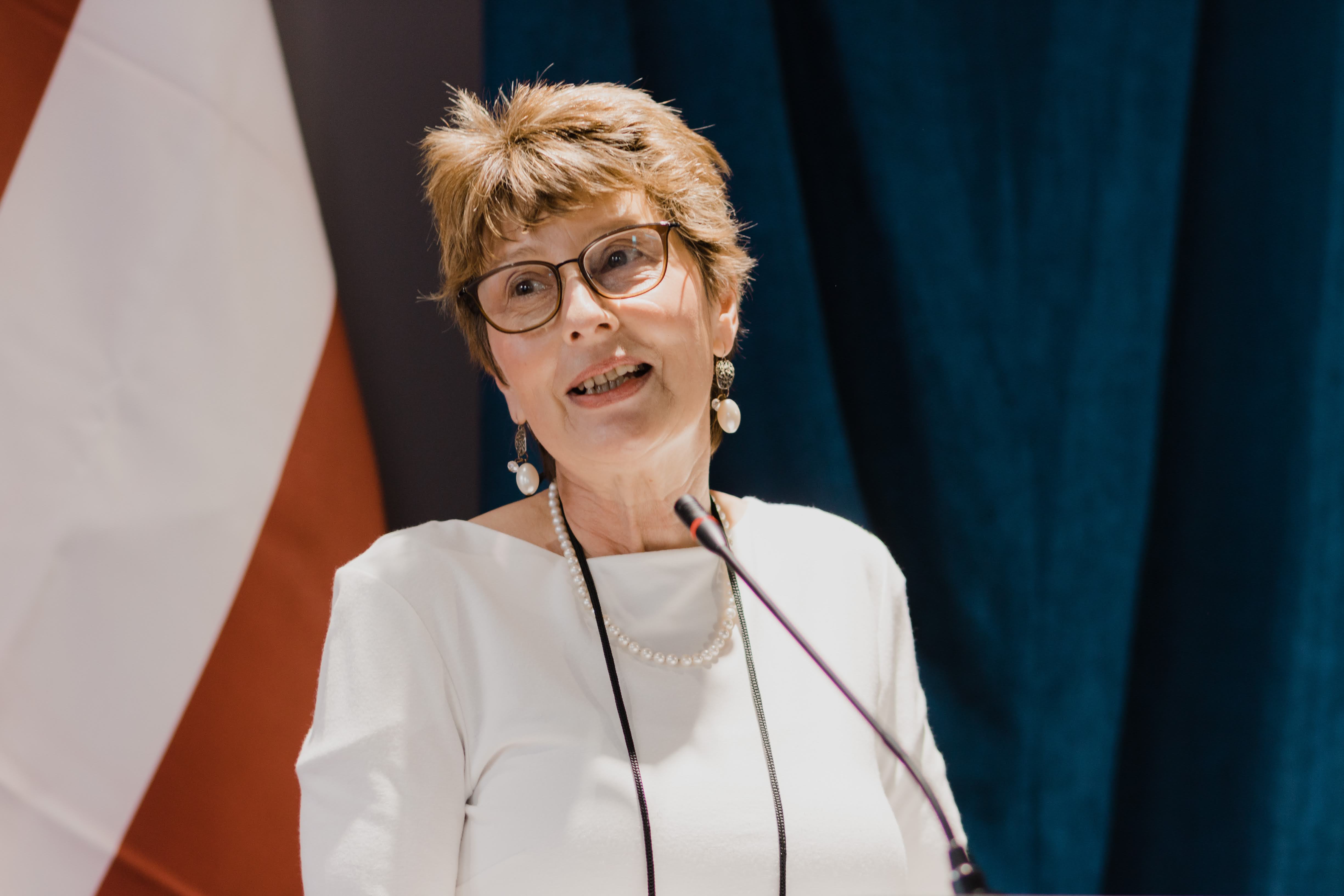
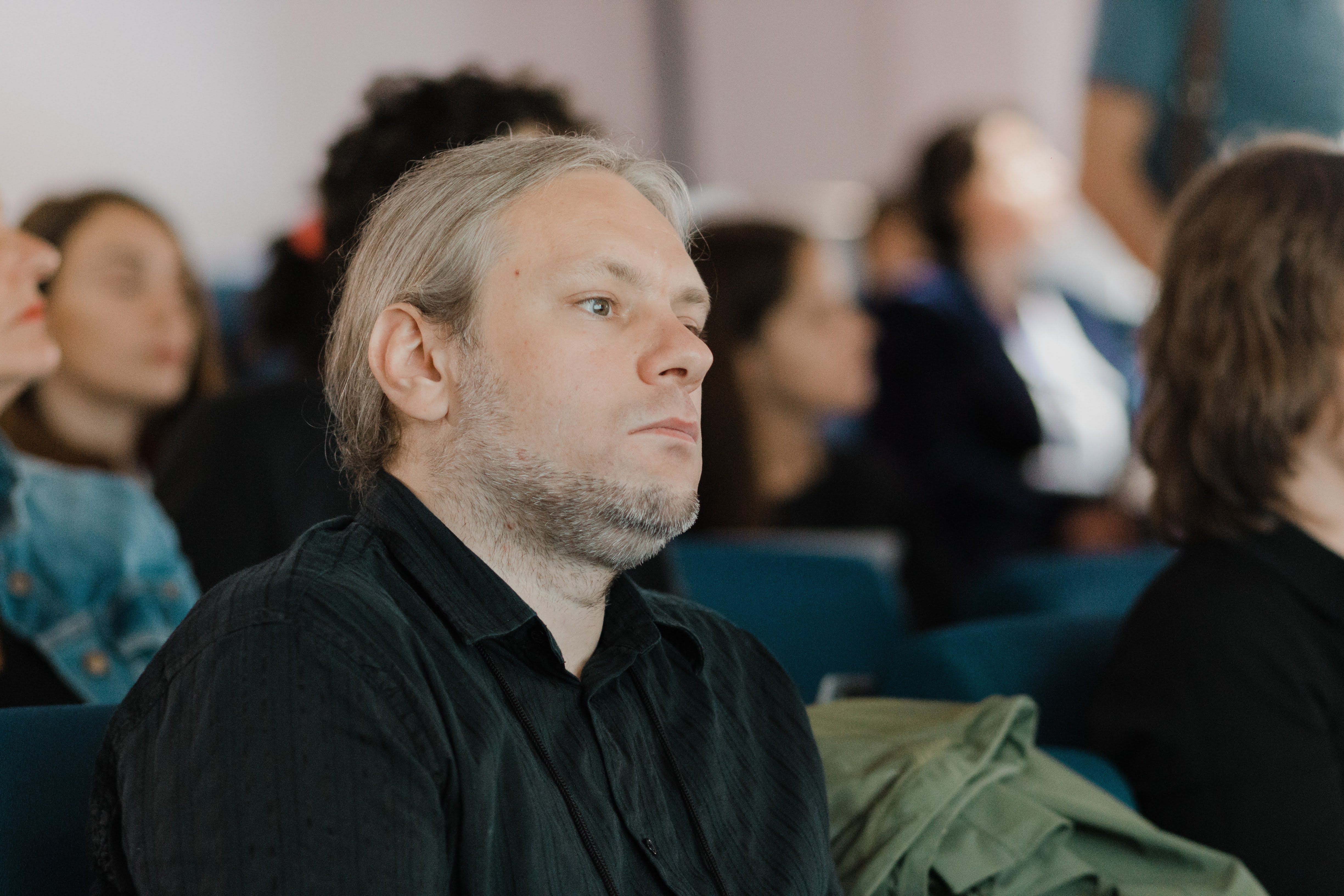
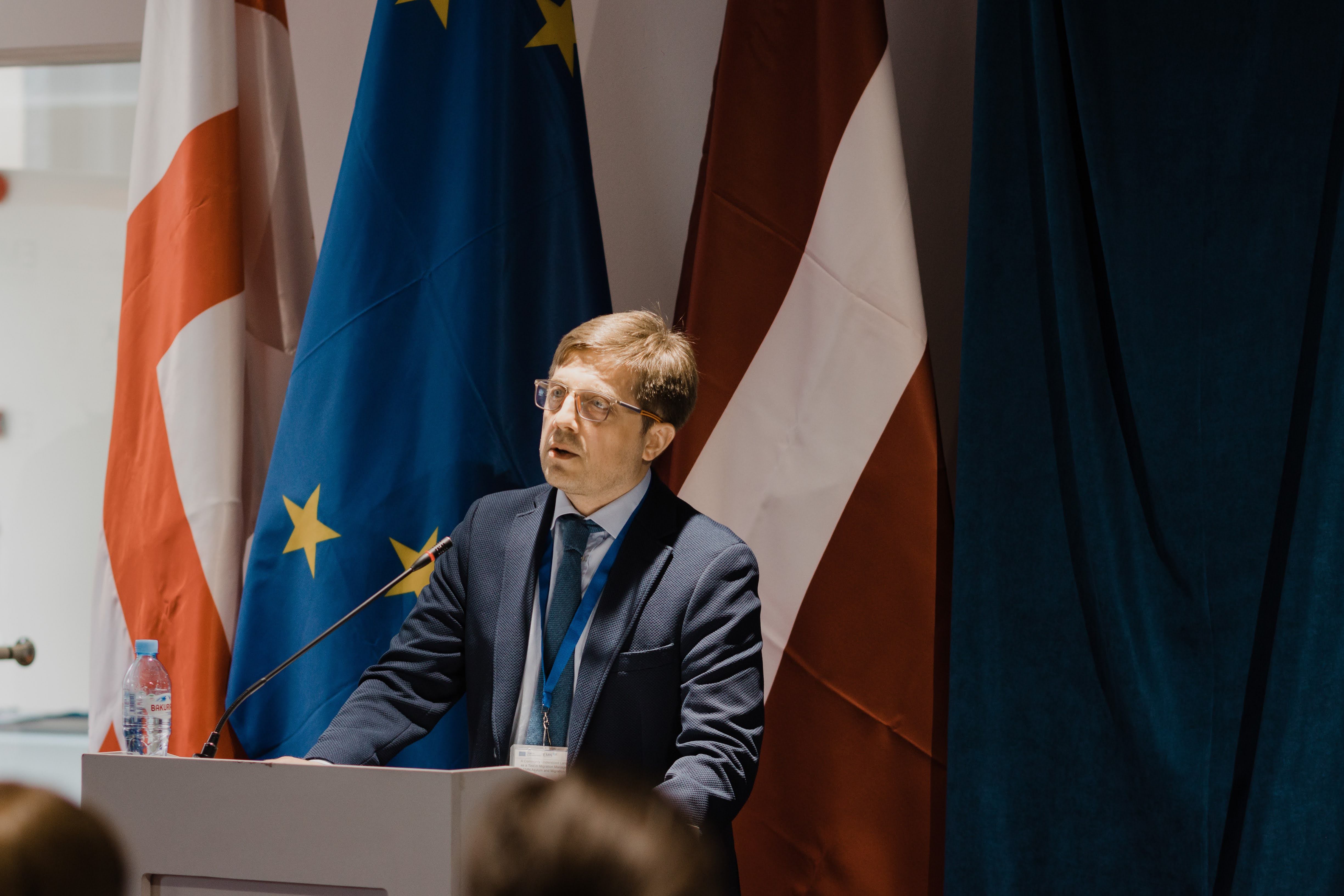
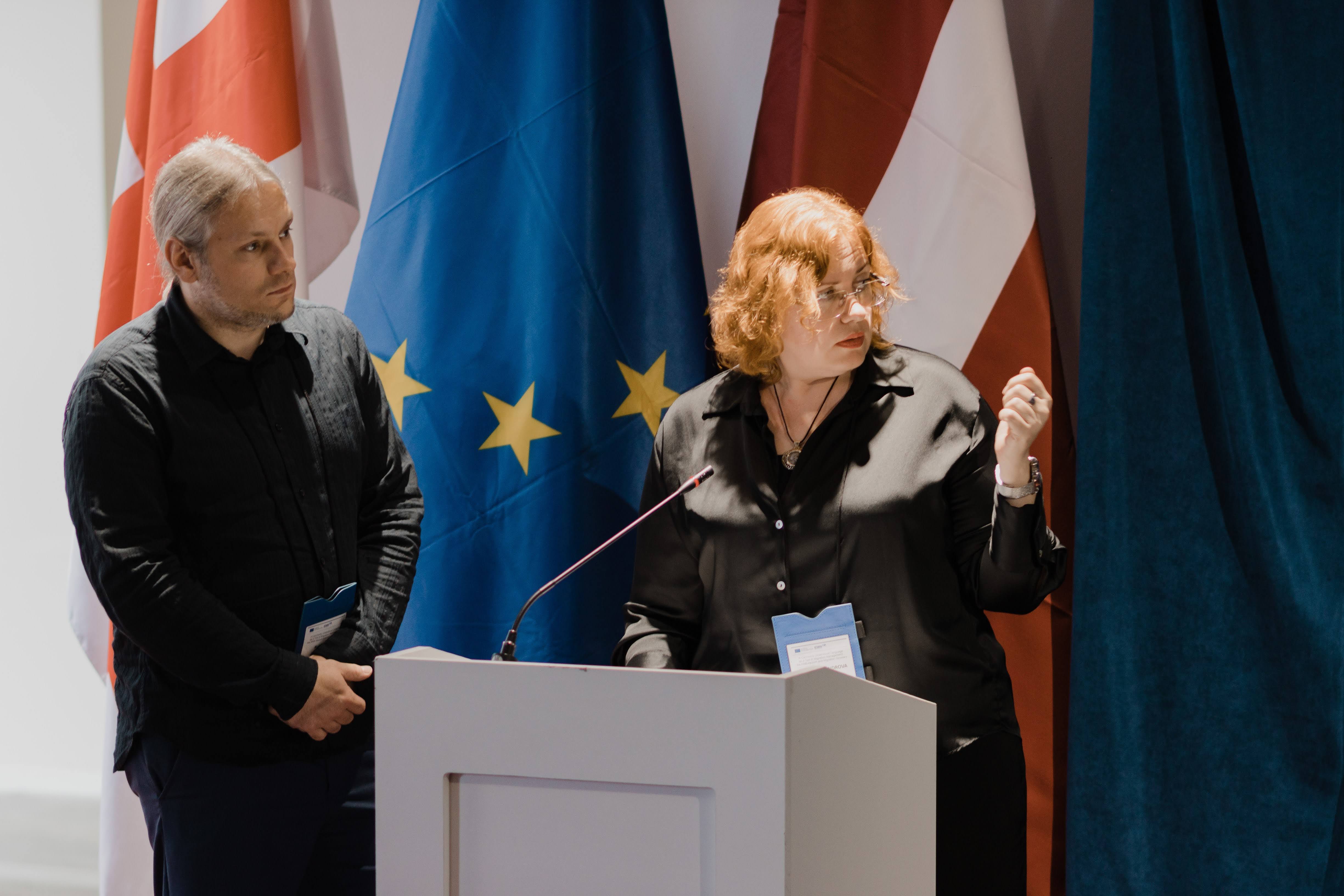

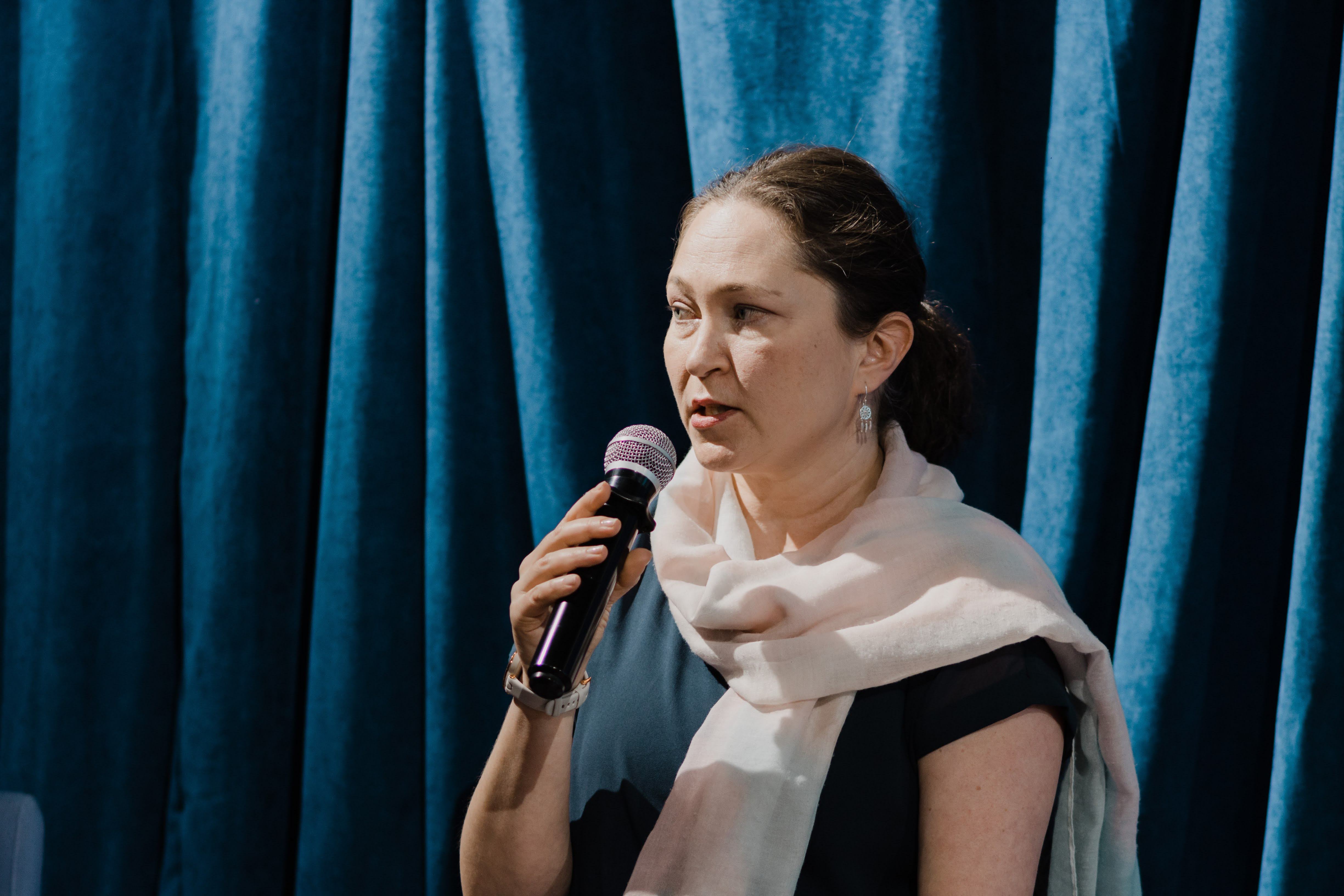
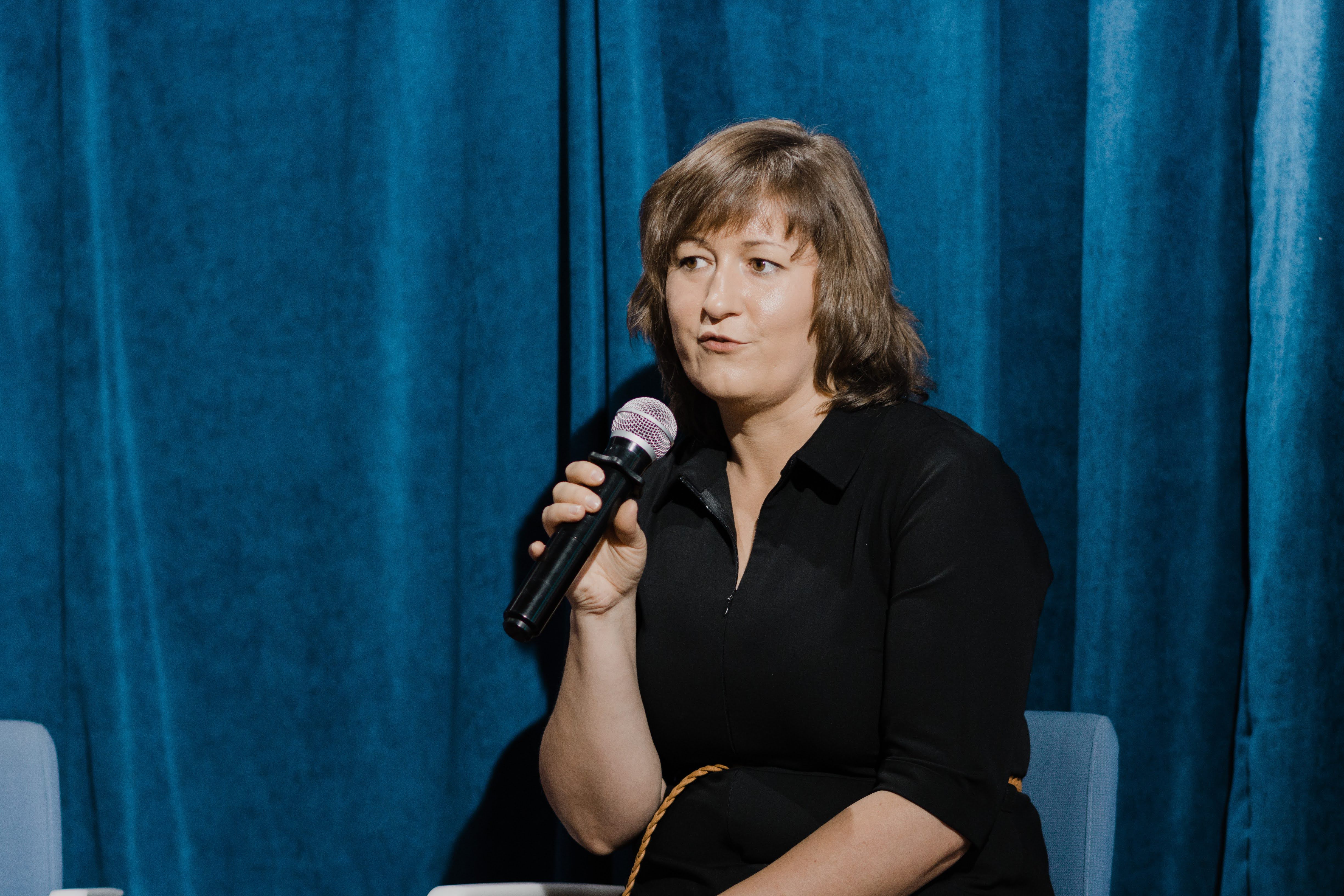

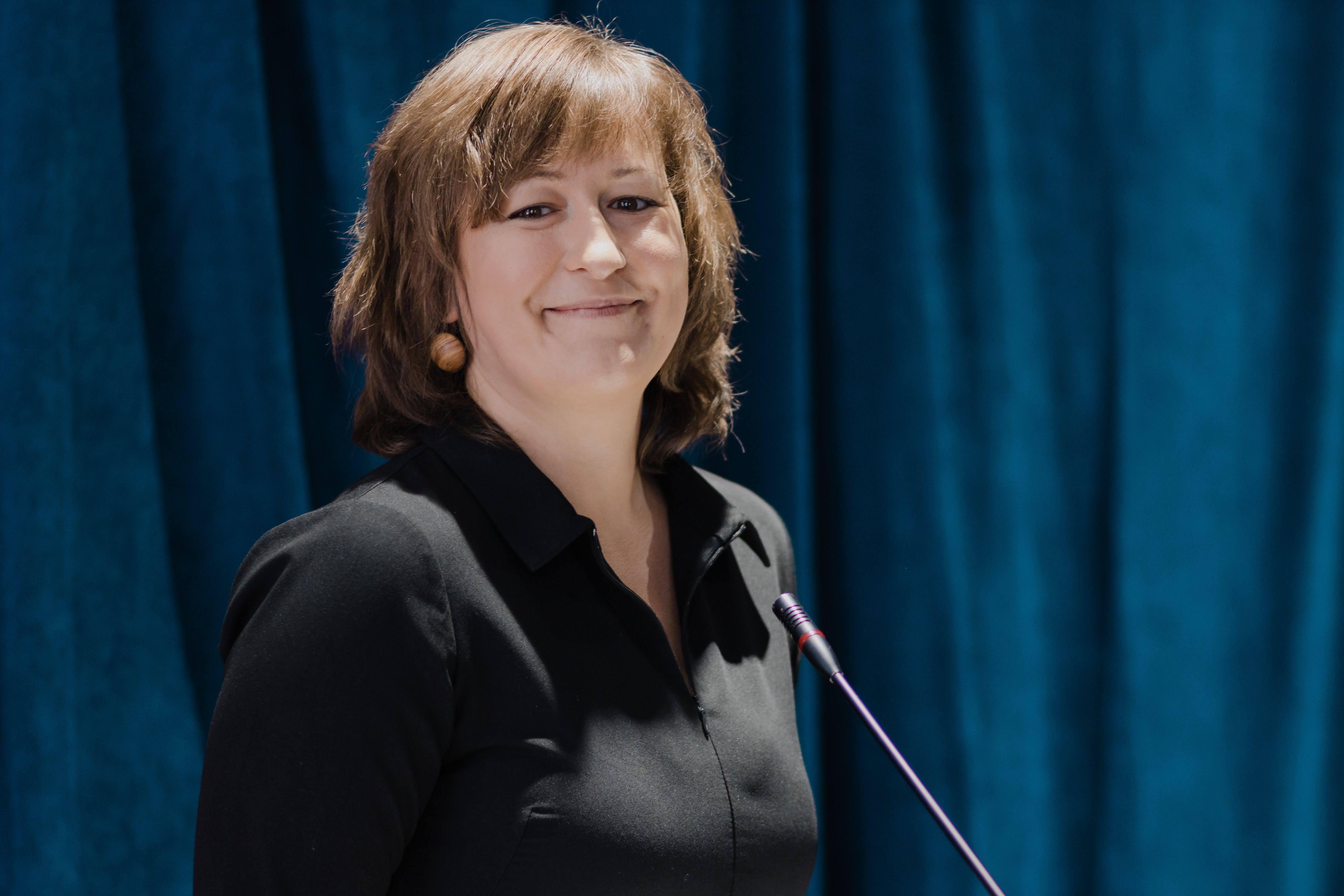
Presentations
1st Session
2nd Session
3rd Session
To download all presentations please click here: All Presentations Part 1 All Presentations Part 2
Speakers
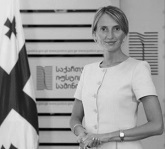
Tamar Tkheshelashvili is currently the First Deputy Minister of Justice of Georgia. Among various strategically important directions within the ministry, she is responsible for the migration management related issues. The Ministry of Justice, is one of the major actors in this field and leads the State Commission on Migration Issues, which is an interagency body and the primary coordination mechanism on migration related actions countrywide. Fostering digital transformation including e-governance also falls under the portfolio managed by Mrs. Tkheshelashvili.
She is a PhD candidate in Law, and has also studied an International Trade Law and Practice within the World Trade Organization (Geneva) and Multimodal program in EU and international law (Brussels). Mrs. Tkeshelashvili has 15 years practice in the legal consulting services. She was the partner of the leading Georgian law firm. Further, she served as a Parliamentary Secretary and a Legal Adviser of the President of Georgia. She was a member of the working groups of the Investors’ Council under the Prime Minister of Georgia. Besides the public sector, she has a vast legal practice in private field (Bank of New York Mellon, EBRD, Western Union etc.). She is a member of the Georgian Bar Association, licensed Lawyer. In addition, she represents academia (lecturer).

Dimitrijs Trofimovs has a Bachelor’s and Master’s degree in Law. Author of many legal publications. Public servant with more than twenty years of experience working in the Ministry of Interior of the Republic of Latvia – he started his career in 2002 as a Legal Advisor, in 2009, advanced to Director of Sectoral Policy Department and since 2017 holds the position of State Secretary. As State Secretary Dimitrijs Trofimovs organizes development of sectoral policy and its implementation, leads the administrative activities of the institution and ensures that the Ministry of Interior fulfils its functions.

Magnus Ovilius is the Head of Sector for the European Commission’s Home Affairs European Migration Network. Previously he has held several other positions in the European Commission, including Head of Sector of EU Agencies and Networks Coordination (FRONTEX, EUROPOL, CEPOL, eu-LISA, EMCDDA and EASO) and Head of Return Sector at DG HOME, where he was responsible for coordinating activities related to return policy formulation and return management for irregular migration in the EU. Magnus Ovilius holds a degree of Master of Laws from the University of Lund in Sweden.
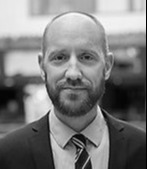
Jonas Hols joined the Swedish National Contact Point of the EMN (European Migration Network) in 2015. Since 2021 he is a co-chair of the EMN Glossary and Thesaurus Working Group (GTWG). He has previously worked in various capacities at the Swedish Migration Agency and the Ministry for Foreign Affairs. In addition to working for the EMN he regularly takes part in international election observation missions, seconded to the OSCE. He holds a Master’s degree in Political Science and a Bachelor’s degree in English.
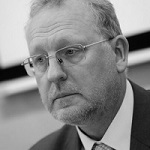
Māris Baltiņš is a linguist, director of the State Language Centre since 2009, speaks French, English, Russian and German. Author of more than 130 scientific articles on the development of Latvian terminology and its history, as well as on medicine, public health and the history of universities, author of 7 books. Scientific editor of the Latvian translation of the International Classification of Diseases (ICD-10) and other health-related classifications since 1992. Member of the Terminology Commission of the Latvian Academy of Sciences since 2000, head of commission since 2016. Member of the State Language Commission (2004-2019).
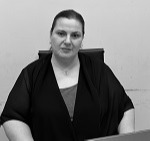
Nino Ali joined the Translation Centre of the LEPL Legislative Herald of Georgia (the Matsne) in 2016 as a reviser/editor. The main functions of the Translation Centre are to translate the legal acts of Georgia into English, EU legal acts into Georgia, and ECHR documents concerning Georgia into Georgian.
Nino holds a Bachelor’s degree in translation from Kutaisi State Technical University and a Master’s degree in technical translation from Akaki Tsereteli State University. Nino has 23 years of professional background in the translation domain.

Olena Aleksandrova is Dean of the Faculty of Social Sciences and Humanities, Borys Grinchenko Kyiv University (Kyiv, Ukraine) and a member (expert) of the National Agency for Quality Assurance in Higher Education (Kyiv, Ukraine). She is a Doctor of Sciences in Philosophy from the National Pedagogical M.P. Dragomanov University (Kyiv, Ukraine), among others, and has a long experience in research and teaching in the fields of philosophy, psychology and social sciences in Ukraine, with a total of over 150 publications. Her latest scientific research focuses on the following topics: Middle Class theory and dynamic model of its formation and foregrounded the methodology of its research in modern transformation Ukrainian society; Middle-class Ukrainian refugees in contemporary Europe: social analysis and forecast; Social uncertainty in Ukrainian society; Problems of social cohesion. Since June 2022, she has been collaborating with the European Migration Network (EMN Luxembourg), including in the context of the Ukrainian translation of the EMN Glossary.

Gaby Wecker is a senior Country of Origin (COI) and terminology expert for asylum and migration and works at the Information Centre for Asylum and Migration (ICAM) of the Federal Office for Migration and Refugees (BAMF) in Nuremberg. She has a library background and began her career as a COI researcher and library manager at ICAM.
Since early 2000, her focus has been on European and international cooperation in the broad field of asylum and migration. She has been active in the Glossary and Thesaurus Working Group (GTWG) since the early days of the European Migration Network and has co-chaired this working group since 2011. Her main focus in glossary work is on further developing the EMN glossary on asylum and migration, expanding cooperation with external EU and international partners and improving the accessibility of the glossary.
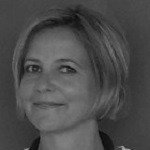
Caroline Reichling, Head of the Unit, Projects and Terminological Coordination Unit, Court of Justice of the European Union
After obtaining a Master’s degree in linguistics at the University of Nancy 2 in 1999, she was recruited by the Publications Office to resurrect the Eurovoc thesaurus. She was responsible for coordination of interinstitutional cooperation, adding languages to Eurovoc (Finnish and Swedish), completing and updating it, designing a dissemination website, maintaining it, defining and supervising informatics and translation work, etc.
Five years later, she was recruited to the Translation Directorate of the CJEU, where she was able to propose an innovative methodology for managing terminology.
Her awareness of the importance of semantics (the different types of relationships that exist between concepts—the ontological dimension) and of the characteristics of terms allowed her to implement ideas that at the time were still little explored. Today, more than ever, with the limits of neural translation, the importance of terminology and semantic (or ontological) relationships is no longer in question.
As coordinator of terminology work, she had the chance to understand the specificities and challenges of legal translation, interpretation, and writing. She developed a methodology based on brilliant exchanges with legal linguists. In 2008, with the help of lawyer-linguists, she designed the Court’s first terminology database, which she abandoned to adopt IATE a few years later. For almost 10 years now, she has managed a unit that provides the necessary support (terminological and documentary) to colleagues working in different departments in the institution who perform translation work (lawyer-linguists), interpretation work (interpreters), drafting work (legal secretaries, administrators), etc.
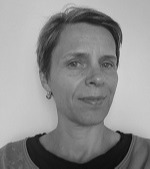
Barbara Duh, Principal Administrator in charge of terminological coordination, Projects and Terminological Coordination Unit, Court of Justice of the European Union
After graduating in law from the Faculty of Law of the University of Ljubljana in Slovenia in 2002, she continued studies of private law at the Poitiers Faculty of Law in France and studies of European law at the Institute of the Right of Peace and Development (Institut de la paix et du développement) of Nice in France.
Since 2004, she has worked at the Court of Justice of the EU. For many years, she was a lawyer linguist in the Slovenian language unit. During that period, she became passionate about terminology while collaborating on multilingual legal terminology projects realized at the Translation Directorate of the CJEU. Since almost 10 years, she has been a member of the unit that provides terminological and documentary support to different services of the CJEU, where she leverages her experience as a lawyer linguist and as an active participant in multilingual legal terminology projects at the CJEU.
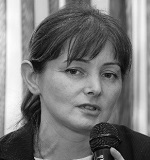
Nino Sanikidze joined the Secretariat of the State Commission on Migration Issues in April 2014 as the expert for Research and Development. During 2005-2012 she worked for the Georgia based Missions of the Organization for Security and Cooperation in Europe and International Organization for Migration (IOM) inter-alia dealing with press and public information and visibility promotion of ongoing activities. She is a principle translator and editor of IOM’s Glossary on Migration (edn. 2004) Georgian version as well as chief editor of EMN Glossary on Asylum and Migration (9.2. version).
Nino Sanikidze holds BA diploma in engineering from Sukhumi-based Georgian Institute for Subtropical Cultures and BA diploma in translation of English Language from Tbilisi Institute of Western Languages and Cultures.

Ralph Petry is a research specialist at EMN Luxembourg at the University of Luxembourg. Since joining EMN Luxembourg in 2016, he has been an active member of the EMN Glossary and Thesaurus Working Group, where he contributes to the German and French translations of the EMN Glossary, together with the German- and French-speaking EMN National Contact Points. Moreover, he coordinated the translation of the EMN Glossary into Ukrainian in 2022, as part of a cooperation between Ukraine and Luxembourg. He folds a MA degree in Social and Cultural Anthropology from the University of Vienna, Austria.
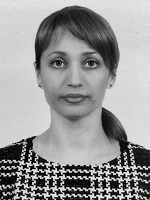
Elena Coliujco is the current head of the Directorate of Migration, Asylum, and Border Control in the Ministry of Internal Affairs (MIA) of the Republic of Moldova. With a background in public administration, she holds a master’s degree in administrative and constitutional law. Since 2003, she has been actively involved in several projects between Moldova and the European Union or INGOs. From 2008 to 2019, she served as the main consultant in the Bureau for Migration and Asylum, under Ministry Internal Affairs. In 2019, she became the head of legislation in the Directorate of Data Management, Coordination, and Legislation of MIA and later assumed the position of head of this Directorate in 2020.

Ilva Ieviņa is the coordinator of EMN Latvia and Head of the Department of European Affairs and International Cooperation of the Office of Citizenship and Migration Affairs. Ilva Ieviņa has long-term experience in managing European Union projects in the field of migration. The knowledge acquired from Master’s studies in Pedagogy and HRM has been used to promote the consolidation of Latvian language in the education system in Latvia and in migration terminology.

Sona OBONOVA is a Senior Research and Networking Specialist at International Organization for Migration (IOM) Slovakia. She has been a member of the EMN Slovakia’s National Coordinating Team since 2011, devoting herself mainly to the content planning of (inter)national meetings for expert audience and the public, including the high-level national conferences and Educational Seminar on Migration (www.emnseminar.sk). She is also active in liaising with different migration stakeholders within and outside the EMN national network. She is a national focal point for the EMN Asylum and Migration Glossary, Annual Report on Migration and Asylum as well as Organisation of Asylum and Migration Policies in the Slovak Republic. Sona holds a degree in International Relations.
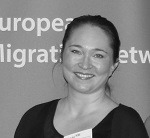
Johanna Väänänen is a Senior Specialist at EMN Finland. EMN Finland is part of the Legal Service and Country Information Unit of the Finnish Immigration Service located in Helsinki. Johanna has long experience in migration management. She has worked with asylum issues and family reunification, and as an immigration liaison officer (ILO) in Addis Ababa, Ethiopia. At EMN her fields of expertise are resettlement, family reunification and children in migration. She has a Master’s degree in English Philology and is passionate about the use of correct terminology and work on the EMN glossary.

George Jashi has over 25 years of experience of working in state and international organizations (Ministry of Foreign Affairs of Georgia, Council of Europe, Public Service Development Agency). Presently he works at the PSDA, as an Executive Secretary of the Secretariat for the State Commission on Migration Issues. The latter played an important role in the successful fulfillment of different reforms within and beyond the EU-Georgia Visa-Dialogue/Liberalization Action Plan and developing of a Whole-of-Government-Approach based migration management system in Georgia. Since 2021 he is the National Contact Point Coordinator for the European Migration Network to which Georgia joined in the capacity of an observer state as the first country outside the European Economic Area. He holds Master’s Degree in Oriental History and International Relations.

